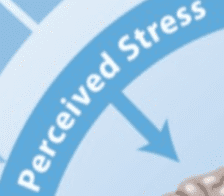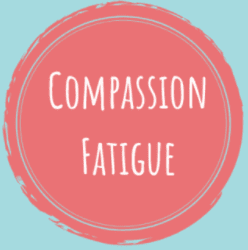Understanding…
Please watch this video from Counselor in training, Bayleigh Griffith:
Please print the following attachments to work on filling out before your next class.
Control v Not Control
Stress Exploration
STRESS. YOU KNOW THE FEELING. YOUR MIND RACES, YOUR BODY TIGHTENS, MAYBE YOU EVEN HAVE A HARD TIME EATING OR SLEEPING. WE KNOW THAT STRESS DOESN’T FEEL GOOD, AND WE MAY EVEN KNOW THAT STRESS IS BAD FOR OUR HEALTH, BUT SO MANY OF US DON’T
KNOW HOW TO STOP IT.
Before we can really understand how to reduce stress we need to know what stress is, exactly. Stress is the full-body response that occurs in response to what we call a stressor—a stressor is some event that we perceive as threatening. The stressor can be something that occurs in our daily lives or it can be something that occurs inside of our minds—for example, our health can be a stressor, but our worries about our health can also be a stressor.
The response that we have to a stressor is called “stress.” Stress is a cascade of bodily changes including activation of the HPA-axis, activation of the sympathetic nervous system, the release of cortisol and the release of the catecholamines norepinephrine and epinephrine. The adrenal glands are then responsible for turning off cortisol, and glucocorticoids help balance the HPA axis after the stressor is no longer present.
A little bit of stress, or “good stress” can be really beneficial—it helps us stay alert and focused while
decreasing our body’s energy expenditure on things like appetite and digestion. Even moderately difficult
stressors can be “good stress” because they can be growth-experiences and increase resilience.
“Tolerable stress” refers to the kind of stress we can cope with, but it may also produce a feeling of
“distress”—or a sense of unease and helplessness to control the situation.
Lastly, “toxic stress” refers to when we experience a stressor and we just can’t cope with it. We can have
difficulty coping with stress for a variety of reasons—for example, our genetics and our upbringing can
leave us more or less resilient to stress. We can also have a harder time with stress if our body’s current
stress load is already high or if our stress response systems are worn down and not working well. Regardless of the causes, “toxic stress” is likely to last longer than “good stress” and cause more problems
because it’s harder to deal with and recover from.
Any prolonged stress can harm our bodies, namely our digestive function, reproduction and immunity.
For example, if we experience just a little stress, our immune system gets a boost. Our body is trying to help us out by fighting off disease and repairing wounds. But if we’re exposed to ongoing stress for a few weeks (or longer), our immune system gets tired and is suppressed. That’s why it’s so important that we learn how to stop stress and get our bodies back in balance as quickly as possible after experiencing a stressor.
Types of Stress:
Acute Stress 
Comes from facing what people coin ‘everyday life’. Traffic made you late today, you said hello and they ignored you, you were overcharged a buck on your credit card. These are all incidental annoyances that are temporary in nature and can be quickly resolved. Acute stress is unpleasant, but can often be managed.
Chronic Stress 
Long-term reactions that grind away at its victim and become toxic. Toxic stress is hazardous to your health. It has rightfully been labeled ‘the silent killer’. When stress lingers and these hormones go into overdrive — called chronic stress — every part of your body and brain suffer. Chronic stress can increase your risk for heart disease and many other problems.
People handle stress and stressful situations differently. Whereas one person might feel energized and empowered when thinking about a job interview, another person might feel distraught and panic about that same interview.
Perceived Stress 
While life is full of stressful situations, we also create many stressful scenarios in our minds that never materialize. Interestingly, the body behaves similarly whether that stress is real or perceived. In other words, a stressful thought can impact your health whether that thought is real or imagined.
In one study, when those who perceived their lives as more stressful than their actual stress exposures justified, their bodies reacted accordingly.
Traumatic Stress 
The impact of an overwhelming tragedy like a fatal car accident, war, rape, or a natural disaster. Sufferers may be diagnosed with a condition called post-traumatic stress disorder (PTSD). Symptoms of traumatic stress may include vivid memories of the trauma, even years later, along with an increased sensitivity to minor events.
Compassion Fatigue 
Compassion fatigue is essentially the “emotional residue” or strain of exposure to working with those who are suffering. This is often seen among caregivers, health care professionals, counselors, and religious/spiritual leaders. This type of work is challenging and emotionally draining – without proper self-care routines, this concept can occur. Common signs include feeling burdened by the suffering of others, lack of empathy, blaming others for their suffering, isolating yourself, loss of pleasure in life, fatigue, frequently complaining about work or life, overeating, use of substances, and denial. Although this looks similar to burnout, compassion fatigue has a much quicker onset. Additionally, if caught earlier, it is much easier/quicker to manage!
Quotable:
“The worst aspect of chronic stress is that people get used to it,” says one book on the subject. “People are immediately aware of acute stress because it’s new; they ignore chronic stress because it’s old, familiar, and, sometimes, almost comfortable.”
“Twenty years of medical research has shown that childhood adversity literally gets under our skin, changing people in ways that can endure in their bodies for decades. It can trigger chronic inflammation and hormonal changes that can last a lifetime. It can alter the way DNA is read and how cells replicate, and it can dramatically increase the risk for heart disease, stroke, cancer, diabetes—even Alzheimer’s.”
“The main issue is that when the stress response is activated too frequently or if the stressor is too intense, the body can lose the ability to shut down… The term for this is disruption of feedback inhibition, which is a science-y way of saying that the body’s stress thermostat is broken. Instead of shutting off the supply of “heat” when a certain point is reached, it just keeps on blasting cortisol through your system.” The Deepest Well by Nadine Burke Harris


